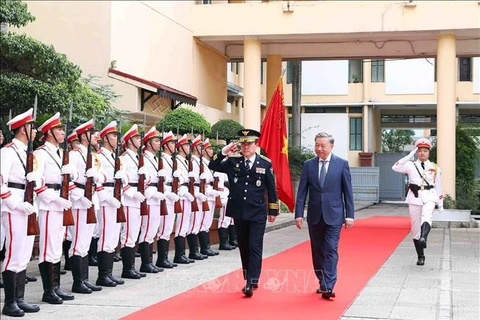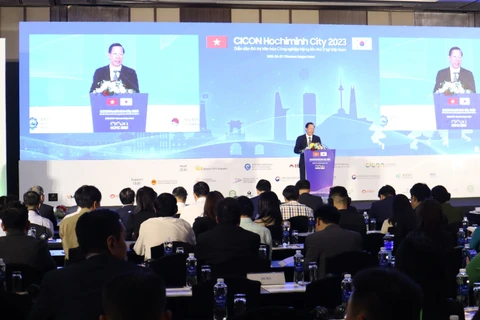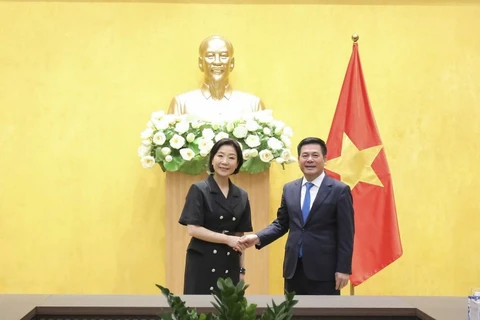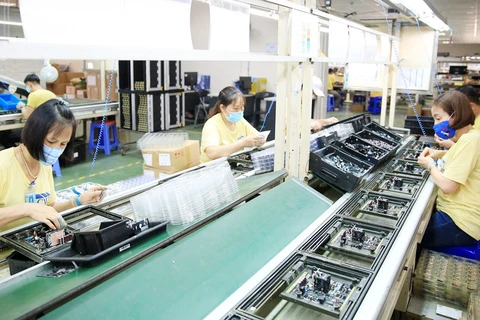Seoul (VNA) – President of the Korea Trade-Investment Promotion Agency (KOTRA) Yu Jeong Yeol had an article published on the Economic Daily on June 19, which described Vietnam as a crucial economic partner that the Republic of Korea (RoK) must definitely cooperate with.
The article highlighted the prominent features of Vietnam, such as a young population with half being under 35 years old. Since the late 1980s, Vietnam has achieved high economic growth, averaging around 6% a year thanks to the success of its foreign policy, active integration and openness. Vietnam is attracting attention as a high-potential market based on its advantages in an abundant and young workforce as well as continuous expansion of infrastructure by the Government. This is why leading countries and multinational corporations continue to bet on Vietnam's growth potential, the article said.
The article also mentioned achievements in two-way trade, which had reached an all-time high of 87.7 billion USD on the occasion of the 30th anniversary of RoK-Vietnam diplomatic relations, turning Vietnam into the third largest trade partner of the RoK. Approximately 8,800 Korean companies have been investing in Vietnam, contributing to trade and economic and industrial ecosystem as well.
According to the article, it can be affirmed that the upcoming Vietnam visit by RoK President Yoon Suk Yeol is a significant opportunity, and all parties should consider orientations of bilateral economic cooperation and strategies for Korean companies to penetrate the Vietnamese market.
The author suggested upgrading the trade structure with Vietnam and strengthening partnerships in the supply chain. The RoK and Vietnam are expanding complementary trade, focusing on intermediate goods and components.
Involvement in projects related to energy and environmental sustainability should also be acknowledged. Vietnam is the first country with which the RoK has signed an agreement on climate change. Furthermore, as government-led projects involving the development of smart cities and smart farms are activated, bilateral cooperation opportunities are expected to expand.
In the field of digital transformation, the article said the demand for cooperation in information and communication technology (ICT) is also growing. Vietnam aims to make a leap forward in future industries such as health care, educational technology, and big data through innovative technologies like 5G and artificial intelligence (AI). Korean small and medium-sized enterprises and startups have recognised these needs and actively entered the Vietnamese market.
In conclusion, the article said the global economy in the post-pandemic era is rapidly changing, and countries around the world are facing numerous challenges. In this transitional phase, the RoK and Vietnam need to strengthen their relationship as strategic and comprehensive partners, while also developing a stronger economic bond.
It is hoped that the State visit to Vietnam by the RoK President will present an opportunity for companies and corporations from both countries to explore future cooperation areas and pave the way for new engines of economic growth, the article said./.

Vietnamese ministry strengthens cooperation with RoK National Police Agency
Minister of Public Security Gen. To Lam hosted a reception in Hanoi on June 5 for a delegation of the National Police Agency (NPA) of the Republic of Korea (RoK) led by Commissioner General Yoon Hee-keun.























